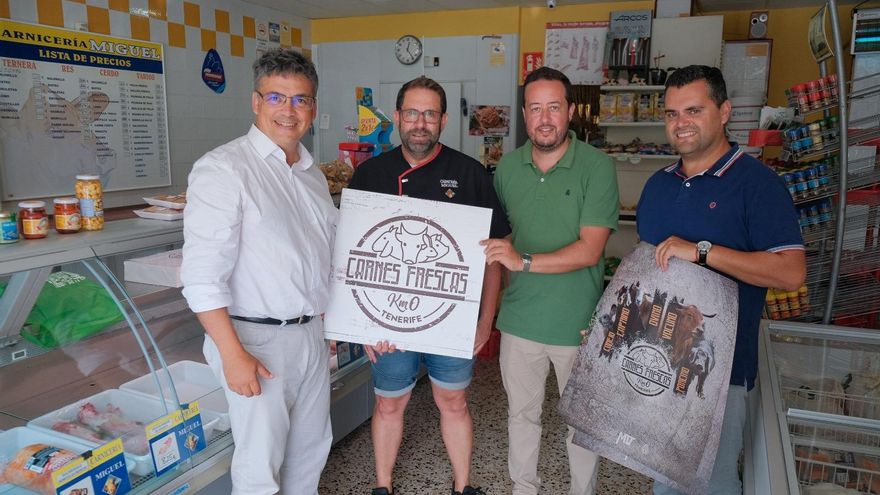
The Cabildo de Tenerife has delivered distinctive posters to more than 20 restaurants and butcher shops in the municipality of La Victoria with the aim that consumers can recognize those establishments that offer fresh meat from the country.
To do this, this morning the island councilor for Agriculture, Livestock and Fisheries, Javier Parrilla, together with the mayor of Victorieros, Juan Antonio García, and the Councilor for Commerce, Juan Ramón Afonso, delivered the posters to the different establishments of Victorieros that with this distinction it is accredited that they offer fresh local meat.
The counselor emphasizes “the importance of continuing to promote the business confidence of the ranchers on the island, and this is also achieved with the promotion of local products, in this case meat, in nearby restaurants.”
Parrilla also values the Carnes Frescas de Tenerife brand as an element of quality and a health and regulatory guarantee. “Although local production cannot compete in price with imported meat, it can in terms of quality, freshness and continuity.”
In this sense, the island official recalls that the consumption of local meat in Tenerife has increased by 10% in the last three years, going from 3,881,403 kilos in 2019 to 4,272,702 in 2021. “A moderate growth in which we want to continue working, and which shows that citizens increasingly appreciate local products more and more”.
For his part, the mayor of La Victoria, Juan Antonio García, thanks the Cabildo for launching this “magnificent” initiative, since “environmental sustainability and product quality must be predominant values and everyone, both administrations and individuals, We should encourage them.”
The municipal head assures that this initiative “has been very well accepted by the establishments”, which will now have a badge “that certifies that they offer meat from our country, kilometer zero, which is always an added value”.
The fundamental objective of the Carnes Frescas de Tenerife brand is to improve identification, quality and generate awareness of the value of fresh and local meat products.
Consuming fresh zero kilometer products is, in fact, equivalent to supporting traditional livestock farming, promoting the local economy and employment, and promoting sustainability, avoiding transport costs and reducing the carbon footprint.















